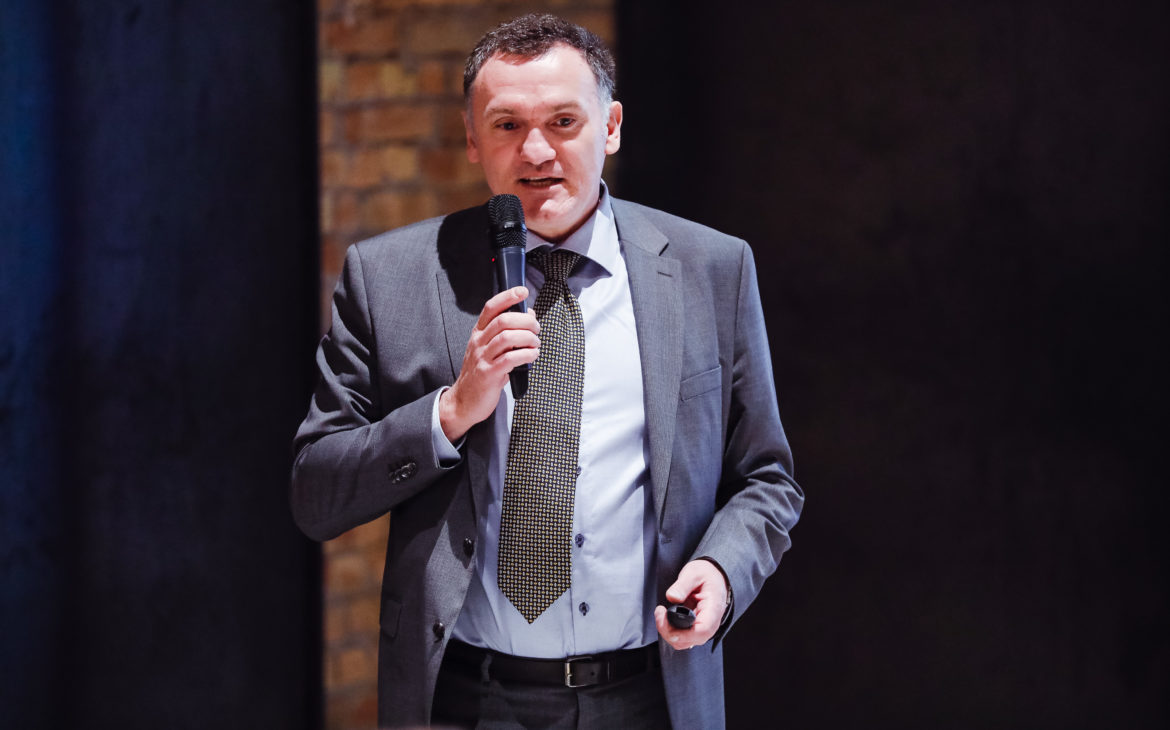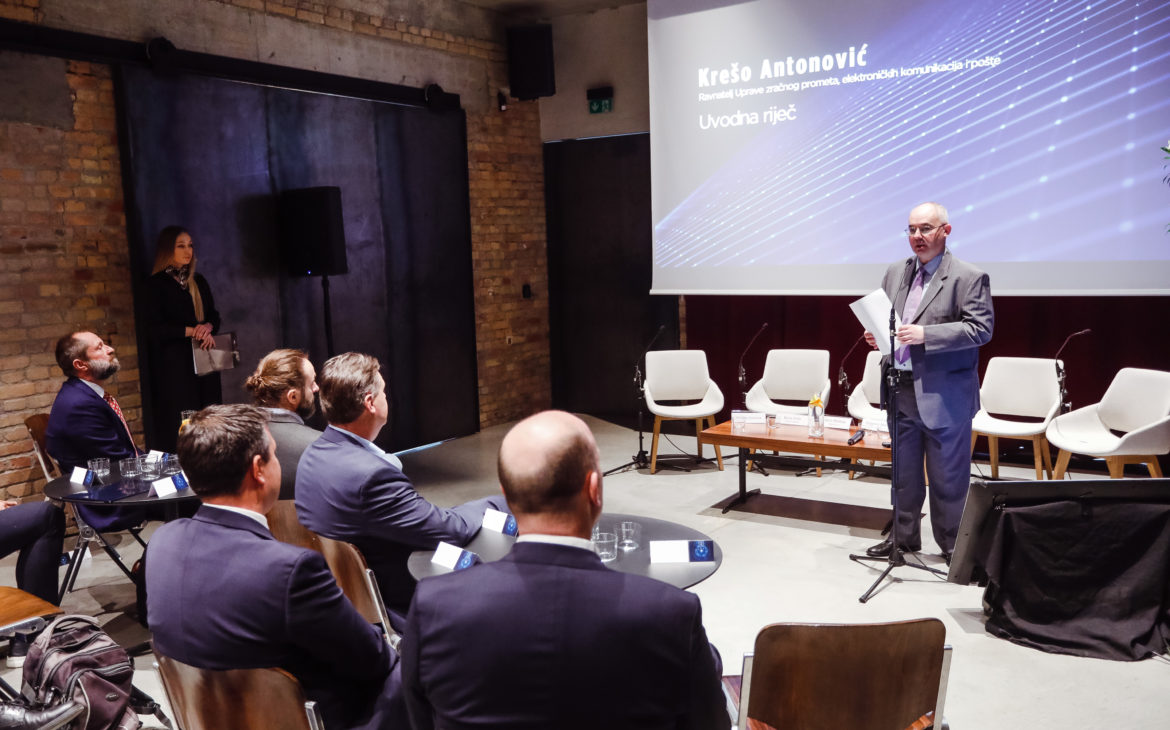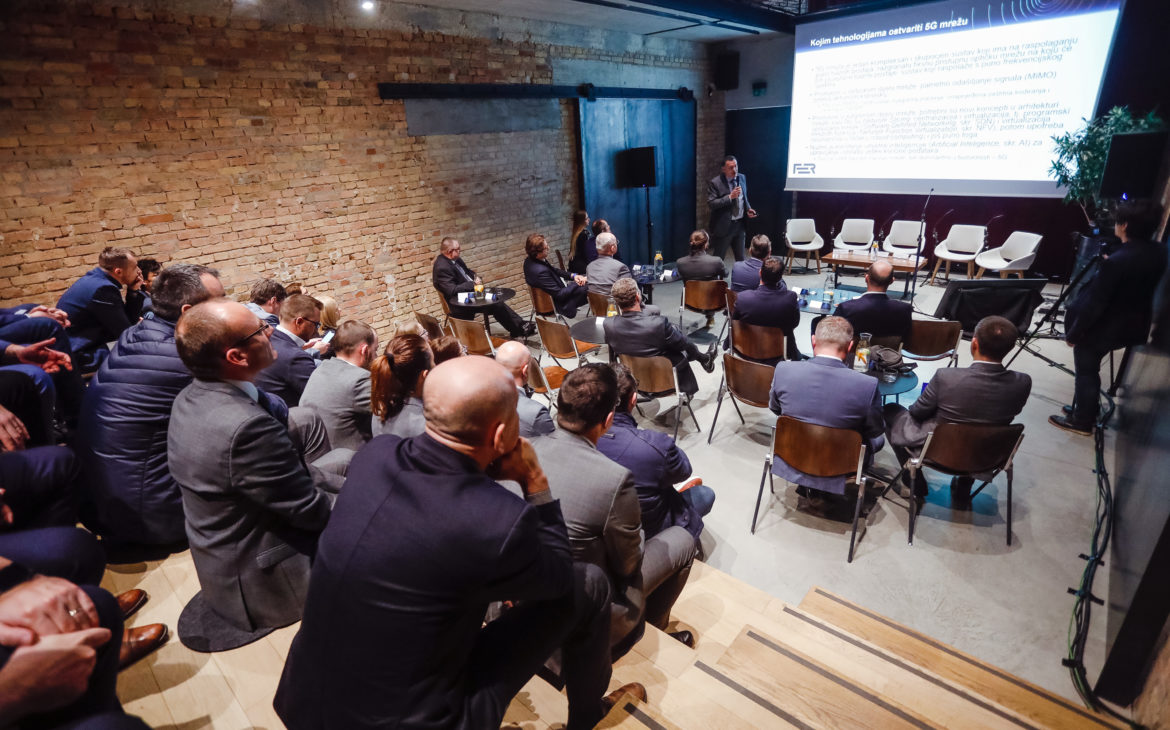Professor Šišul pointed out that the key to 5G technology was to ensure immediate connectivity of everything in real time, which is a prerequisite for the development of Industry 4.0.
Namely, the future lies in connecting a large number of devices, the communication of devices, and IoT, i.e. Internet of Things in real time because, as Professor Šišul explains, the goal is to make the whole world accessible in the palm of your hand and manage all connected devices with a single smart device.

Artificial intelligence and 5G are perhaps the most auspicious technologies of this decade and will contribute to the development of the entire economy. The new services will improve everyone’s life, from remote medicine and care for the elderly, to help with business, such as offices on the go, easier shopping, and faster flow of business information, said Professor Šišul, adding that analysts estimate 5G technology and artificial intelligence on that infrastructure will by 2035 create a new value of 9.2 percent of global GDP.
He notes that the challenge in the realization of investments is the legislation, where more departments must be organized in order to accelerate the construction and deployment of infrastructure, and an additional future threat are cyber-attacks, given that we are moving towards full connectivity of all things and people. The challenge for telecoms is the economic justification of investments, pointed out Šišul, who believes that the new source of income for the telecommunications sector can be IoT, while in the user sector he does not see much room for increasing revenue.
Krešo Antonović, Head of Electronic Communications and Postal Service Directorate at the line ministry, said in his welcome speech that the Ministry of the Sea, Transport and Infrastructure is very aware of the importance and need for communication and digital connectivity and that the basis for all of this is 5G infrastructure.
He reminded the telecoms of two government subsidy programs for the development of new infrastructure in rural areas. Thus, in 2020, the Access Network Program provided internet access for 156 thousand households in rural areas, and the new National Recovery and Resilience Plan for rural areas ensured HRK 800 million in grants. The National Program for the Development of Broadband Access Infrastructure Development Program, on the other hand, has provided around €101 million in grants for the development of IoT and next-generation networks.

“In addition to the aforementioned EU support, the investments of the operators are also important to us. Only intensive investments in broadband networks will give citizens access to the digital society, and thus grow the competitiveness of Croatia as a whole,” Antonović stressed.
He added that according to the Digital Economy and Society Index (DESI), which measures digital development, Croatia was ranked 19th in the European Union, but that was before the 5G spectrum auction. Even then, due to the investment of operators in fiber optic networks and the willingness to invest in 5G networks in the area of connectivity, Croatia had moved up several places. For this reason, Antonović is convinced that investments in 5G infrastructure will further raise Croatia in the area of connectivity, as well as ensure a better overall DESI ranking.
